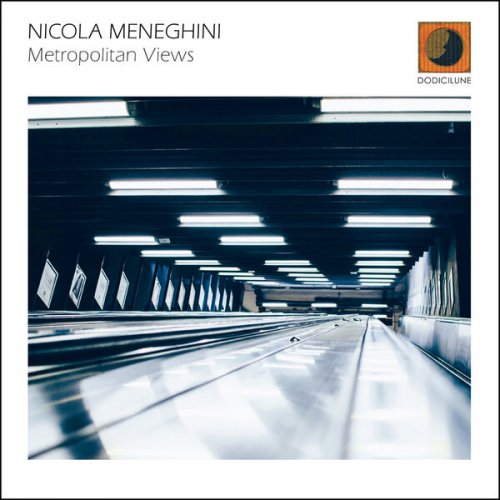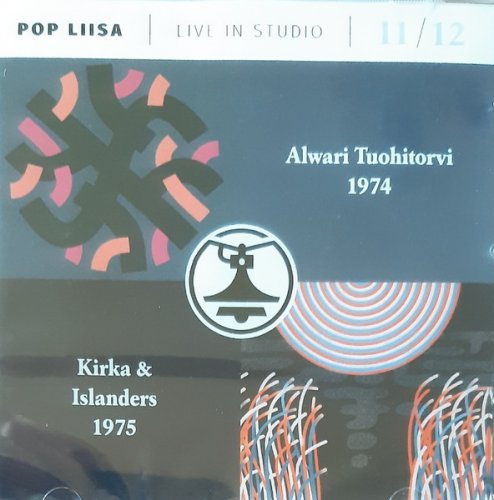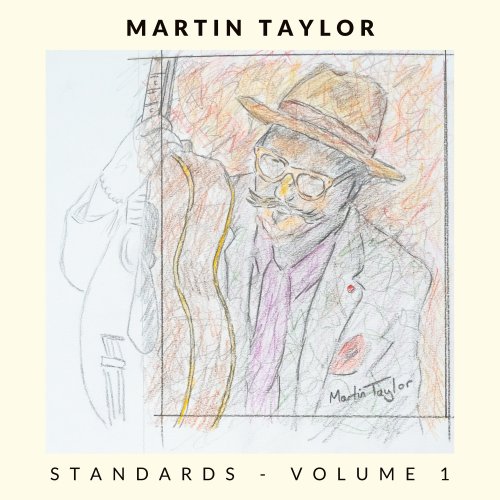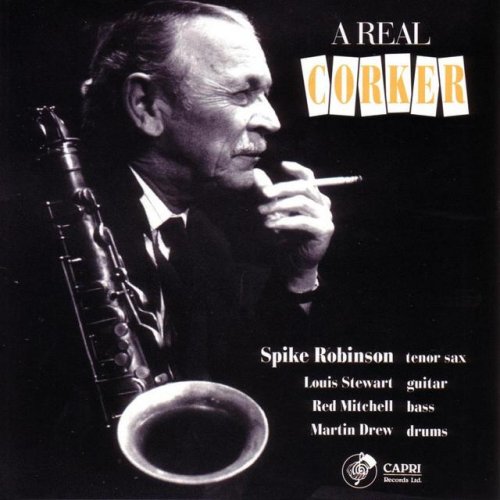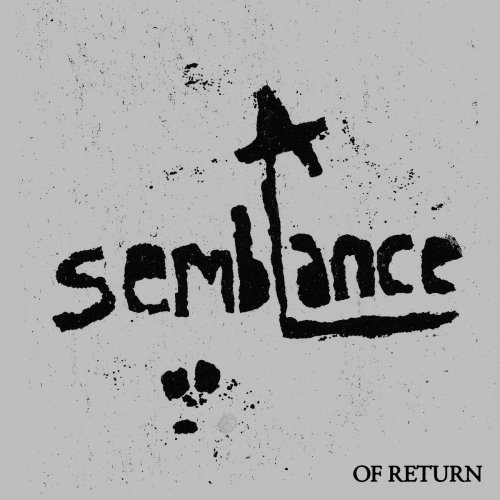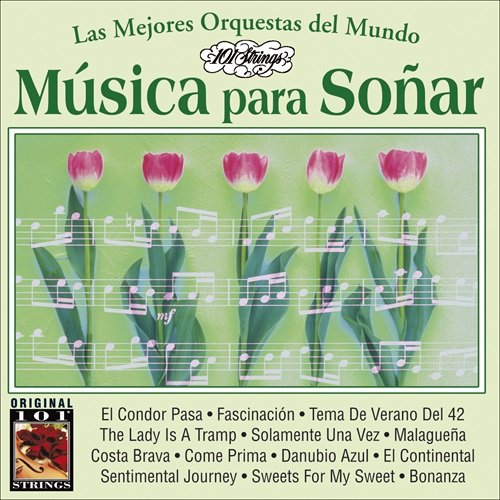Artist:
Michael Feinstein With The Carmel Symphony Orchestra
Title:
We Dreamed These Days
Year Of Release:
2011
Label:
DuckHole Records [DR-3194-4]
Genre:
Jazz, Vocal Jazz
Quality:
FLAC (tracks + .cue,log)
Total Time: 53:09
Total Size: 288 MB(+3%)
WebSite:
Album Preview
Tracklist01. How Do You Keep the Music Playing (4:16)
02. Two for the Road (3:06)
03. As Long as She Needs Me (4:03)
04. With You (3:39)
05. The More I See You/There Will Never Be Another You (4:29)
06. Dream a Little Dream of Me (3:28)
07. What Kind of Fool Am I (4:43)
08. I Remember You (5:14)
09. The Hungry Years (4:11)
10. When I Fall in Love/My Foolish Heart (5:33)
11. If They Ask Me (3:27)
12. I'd Rather Leave While I'm in Love (3:33)
13. We Dreamed These Days (3:27)
Singer/pianist Michael Feinstein fronts the Carmel Symphony Orchestra on We Dreamed These Days, leading the ensemble through a collection of romantic ballads that seems to have been assembled to tell an autumnal love story. He begins with composer Michel Legrand and lyricists Marilyn and Alan Bergman's examination of mature commitment, "How Do You Keep the Music Playing," which suggests the theme. This is not young love or love discovered, it is love examined in midstream. The orchestra's arrangements and Feinstein's vocal delivery both suggest that things are going downhill in this relationship, even as, for instance, he proclaims that "As Long as She Needs Me," he'll stick it out. (Appropriately, the song is a repurposed version of Lionel Bart's "As Long as He Needs Me" from Oliver!, sung in the show by Nancy of Bill, who later will kill her.) A turning point seems to come in the medley of "The More I See You" with "There Will Never Be Another You," as Feinstein moves from proclaiming devotion to affectionate reminiscence of a love that is over. Thereafter, he effectively mixes old standards like "I Remember You" with more recent soft rock ballads like Neil Sedaka and Howard Greenfield's "The Hungry Years" and Peter Allen's "I'd Rather Leave While I'm in Love." That song is the real album closer, or should have been. Feinstein tacks on a composition of his own, the title song, which ends things on an oddly anthemic note. "We Dreamed These Days" the song, with its heroic arrangement and lyrical references to freedom and liberty, sounds like it was written to be a new national anthem, and doesn't fit with what has come before.~William Ruhlmann
Exact Audio Copy V1.6 from 23. October 2020
EAC extraction logfile from 1. February 2024, 13:43
Michael Feinstein With The Carmel Symphony Orchestra / We Dreamed These Days
Used drive : HL-DT-STBD-RE BU40N Adapter: 1 ID: 0
Read mode : Secure
Utilize accurate stream : Yes
Defeat audio cache : Yes
Make use of C2 pointers : No
Read offset correction : 6
Overread into Lead-In and Lead-Out : No
Fill up missing offset samples with silence : Yes
Delete leading and trailing silent blocks : No
Null samples used in CRC calculations : Yes
Used interface : Native Win32 interface for Win NT & 2000
Gap handling : Appended to previous track
Used output format : User Defined Encoder
Selected bitrate : 1024 kBit/s
Quality : High
Add ID3 tag : No
Command line compressor : C:\Program Files (x86)\Exact Audio Copy\FLAC\FLAC.EXE
Additional command line options : -8 -V -T "ARTIST=%artist%" -T "TITLE=%title%" -T "ALBUM=%albumtitle%" -T "DATE=%year%" -T "TRACKNUMBER=%tracknr%" -T "GENRE=%genre%" -T"PERFORMER=%albuminterpret%" -T "COMPOSER=%composer%" %haslyrics%--tag-from-file=LYRICS="%lyricsfile%"%haslyrics% -T"ALBUMARTIST=%albumartist%" -T "DISCNUMBER=%cdnumber%" -T "TOTALDISCS=%totalcds%" -T "TOTALTRACKS=%numtracks%" -T "COMMENT=%comment%" %source% -o %dest%
TOC of the extracted CD
Track | Start | Length | Start sector | End sector
---------------------------------------------------------
1 | 0:00.00 | 4:16.29 | 0 | 19228
2 | 4:16.29 | 3:06.16 | 19229 | 33194
3 | 7:22.45 | 4:02.48 | 33195 | 51392
4 | 11:25.18 | 3:39.02 | 51393 | 67819
5 | 15:04.20 | 4:29.09 | 67820 | 88003
6 | 19:33.29 | 3:27.47 | 88004 | 103575
7 | 23:01.01 | 4:42.65 | 103576 | 124790
8 | 27:43.66 | 5:13.68 | 124791 | 148333
9 | 32:57.59 | 4:10.53 | 148334 | 167136
10 | 37:08.37 | 5:32.73 | 167137 | 192109
11 | 42:41.35 | 3:26.58 | 192110 | 207617
12 | 46:08.18 | 3:32.70 | 207618 | 223587
13 | 49:41.13 | 3:27.31 | 223588 | 239143
Track 1
Filename L:\Media6\Temp\Music\Michael Feinstein With The Carmel Symphony Orchestra - We Dreamed These Days (2011) [FLAC]\01 - How Do You Keep The Music Playing.wav
Pre-gap length 0:00:02.00
Peak level 97.7 %
Extraction speed 1.2 X
Track quality 100.0 %
Test CRC DDF6152C
Copy CRC DDF6152C
Accurately ripped (confidence 2) [AE203CC3] (AR v2)
Copy OK
Track 2
Filename L:\Media6\Temp\Music\Michael Feinstein With The Carmel Symphony Orchestra - We Dreamed These Days (2011) [FLAC]\02 - Two For The Road.wav
Pre-gap length 0:00:02.00
Peak level 97.7 %
Extraction speed 1.3 X
Track quality 100.0 %
Test CRC 50EF6655
Copy CRC 50EF6655
Accurately ripped (confidence 2) [C5CA1AEB] (AR v2)
Copy OK
Track 3
Filename L:\Media6\Temp\Music\Michael Feinstein With The Carmel Symphony Orchestra - We Dreamed These Days (2011) [FLAC]\03 - As Long As She Needs Me.wav
Pre-gap length 0:00:02.00
Peak level 97.7 %
Extraction speed 1.5 X
Track quality 100.0 %
Test CRC A23AA41D
Copy CRC A23AA41D
Accurately ripped (confidence 2) [3CC04607] (AR v2)
Copy OK
Track 4
Filename L:\Media6\Temp\Music\Michael Feinstein With The Carmel Symphony Orchestra - We Dreamed These Days (2011) [FLAC]\04 - With You.wav
Pre-gap length 0:00:02.50
Peak level 97.7 %
Extraction speed 1.5 X
Track quality 100.0 %
Test CRC 184D3DDC
Copy CRC 184D3DDC
Accurately ripped (confidence 2) [E69286EB] (AR v2)
Copy OK
Track 5
Filename L:\Media6\Temp\Music\Michael Feinstein With The Carmel Symphony Orchestra - We Dreamed These Days (2011) [FLAC]\05 - There Will Never Be Another You.wav
Pre-gap length 0:00:02.00
Peak level 97.7 %
Extraction speed 1.7 X
Track quality 100.0 %
Test CRC 4741F5E1
Copy CRC 4741F5E1
Accurately ripped (confidence 2) [624E9F90] (AR v2)
Copy OK
Track 6
Filename L:\Media6\Temp\Music\Michael Feinstein With The Carmel Symphony Orchestra - We Dreamed These Days (2011) [FLAC]\06 - Dream A Little Dream Of Me.wav
Pre-gap length 0:00:02.50
Peak level 97.7 %
Extraction speed 1.7 X
Track quality 100.0 %
Test CRC A5EC8E3C
Copy CRC A5EC8E3C
Accurately ripped (confidence 2) [B6559AD7] (AR v2)
Copy OK
Track 7
Filename L:\Media6\Temp\Music\Michael Feinstein With The Carmel Symphony Orchestra - We Dreamed These Days (2011) [FLAC]\07 - What Kind Of Fool Am I.wav
Pre-gap length 0:00:02.00
Peak level 97.7 %
Extraction speed 1.5 X
Track quality 99.9 %
Test CRC 26887A35
Copy CRC 26887A35
Accurately ripped (confidence 2) [E13624A8] (AR v2)
Copy OK
Track 8
Filename L:\Media6\Temp\Music\Michael Feinstein With The Carmel Symphony Orchestra - We Dreamed These Days (2011) [FLAC]\08 - I Remember You.wav
Pre-gap length 0:00:02.00
Peak level 97.7 %
Extraction speed 2.0 X
Track quality 100.0 %
Test CRC E668A788
Copy CRC E668A788
Accurately ripped (confidence 2) [FE17AAA9] (AR v2)
Copy OK
Track 9
Filename L:\Media6\Temp\Music\Michael Feinstein With The Carmel Symphony Orchestra - We Dreamed These Days (2011) [FLAC]\09 - The Hungry Years.wav
Pre-gap length 0:00:02.00
Peak level 97.7 %
Extraction speed 2.1 X
Track quality 100.0 %
Test CRC CDEE4665
Copy CRC CDEE4665
Accurately ripped (confidence 2) [A0F54ADE] (AR v2)
Copy OK
Track 10
Filename L:\Media6\Temp\Music\Michael Feinstein With The Carmel Symphony Orchestra - We Dreamed These Days (2011) [FLAC]\10 - My Foolish Heart.wav
Pre-gap length 0:00:02.00
Peak level 97.7 %
Extraction speed 1.7 X
Track quality 99.9 %
Test CRC 3C558B17
Copy CRC 3C558B17
Accurately ripped (confidence 2) [4200EA13] (AR v2)
Copy OK
Track 11
Filename L:\Media6\Temp\Music\Michael Feinstein With The Carmel Symphony Orchestra - We Dreamed These Days (2011) [FLAC]\11 - If They Ask Me.wav
Pre-gap length 0:00:02.00
Peak level 97.7 %
Extraction speed 2.2 X
Track quality 100.0 %
Test CRC C4404E64
Copy CRC C4404E64
Accurately ripped (confidence 2) [7E74D41F] (AR v2)
Copy OK
Track 12
Filename L:\Media6\Temp\Music\Michael Feinstein With The Carmel Symphony Orchestra - We Dreamed These Days (2011) [FLAC]\12 - I'd Rather Leave While I'm In Love.wav
Pre-gap length 0:00:02.00
Peak level 97.7 %
Extraction speed 2.3 X
Track quality 100.0 %
Test CRC AC6AD200
Copy CRC AC6AD200
Accurately ripped (confidence 2) [929FDBA4] (AR v2)
Copy OK
Track 13
Filename L:\Media6\Temp\Music\Michael Feinstein With The Carmel Symphony Orchestra - We Dreamed These Days (2011) [FLAC]\13 - We Dreamed These Days.wav
Pre-gap length 0:00:02.00
Peak level 97.7 %
Extraction speed 2.3 X
Track quality 100.0 %
Test CRC A1736F90
Copy CRC A1736F90
Accurately ripped (confidence 2) [69FBF312] (AR v2)
Copy OK
All tracks accurately ripped
No errors occurred
End of status report
---- CUETools DB Plugin V2.1.6
[CTDB TOCID: rRpDcZ9PAX8uMEJJSCryLu0KwsE-] found
Submit result: rRpDcZ9PAX8uMEJJSCryLu0KwsE- has been confirmed
Track | CTDB Status
1 | (6/6) Accurately ripped
2 | (6/6) Accurately ripped
3 | (6/6) Accurately ripped
4 | (6/6) Accurately ripped
5 | (6/6) Accurately ripped
6 | (6/6) Accurately ripped
7 | (6/6) Accurately ripped
8 | (6/6) Accurately ripped
9 | (6/6) Accurately ripped
10 | (6/6) Accurately ripped
11 | (6/6) Accurately ripped
12 | (6/6) Accurately ripped
13 | (6/6) Accurately ripped
==== Log checksum A822CB5418EF711C5C3328AB412944A4395243075E914CC1C9C054A255FE0998 ====
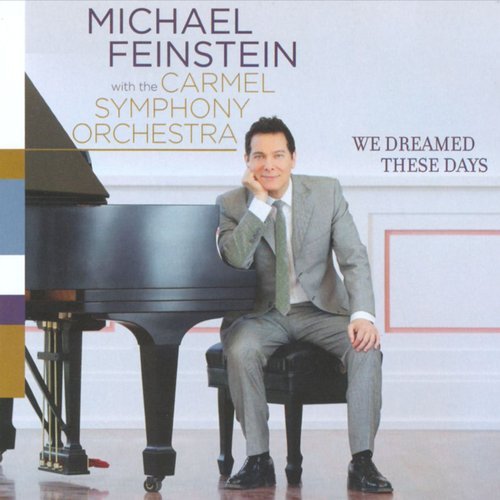

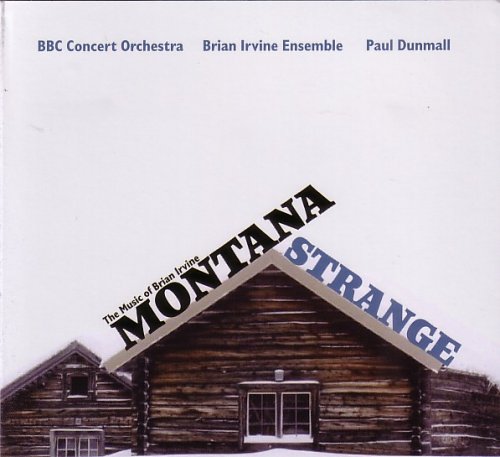
![The Mood Mosaic & Fausto Papetti - Bésame (Y Haz De Mi Cuerpo Tu Reino) (2026) [Hi-Res] The Mood Mosaic & Fausto Papetti - Bésame (Y Haz De Mi Cuerpo Tu Reino) (2026) [Hi-Res]](https://www.dibpic.com/uploads/posts/2026-02/1772125285_cover.jpg)
